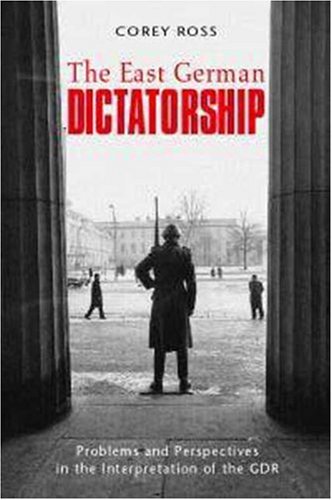Product desciption
The East German Dictatorship Problems And Perspectives In The Interpretation Of The Gdr Corey Ross by Corey Ross 9780340762660, 0340762667 instant download after payment.
When the Berlin Wall came down, historians found themselves unexpectedly challenged to reassess the nature of the German Democratic Republic. The period since the transformational changes of 1989-90 has seen feverish activity in the archives, as historians have sought to deepen understanding of how the regime functioned and to move beyond earlier views inescapably conditioned by Cold War antagonisms. No historical consensus has emerge and the controversy about the GDR is undiminished, in part because of the continuing importance of interpretations of the GDR's history to German political culture. The proliferation of published research has shifted the contours of debate and given rise to new issues, not always in clear-cut fashion. This study of the East German dictatorship is the first detailed mapping of the area, identifying key interpretational issues, describing the evolution of different approaches to them, and providing the author's own evaluation. A wide range of themes is covered, from state/society relations to the role of opposition to the GDR's place in the longer sweep of German history, and central aspects of the regime's foundation, internal organization, social and economic system, collapse, and 'after-life' receive close attention. Corey Ross, Reader in Modern History, University of Birmingham, UK When the Berlin Wall came down, historians found themselves unexpectedly challenged to reassess the nature of the German Democratic Republic. The period since the transformational changes of 1989-90 has seen feverish activity in the archives, as historians have sought to deepen understanding of how the regime functioned and to move beyond earlier views inescapably conditioned by Cold War antagonisms. No historical consensus has emerge and the controversy about the GDR is undiminished, in part because of the continuing importance of interpretations of the GDR's history to German political culture. The proliferation of published research has shifted the contours of debate and given rise to new issues, not always in clear-cut fashion. This study of the East German dictatorship is the first detailed mapping of the area, identifying key interpretational issues, describing the evolution of different approaches to them, and providing the author's own evaluation. A wide range of themes is covered, from state/society relations to the role of opposition to the GDR's place in the longer sweep of German history, and central aspects of the regime's foundation, internal organization, social and economic system, collapse, and 'after-life' receive close attention. "An outstanding resource for students of the history of the G. D. R and its postcommunist transformation....An extraordinarily useful tool for understanding the shifting views of the G.D.R."—German Studies Review "An outstanding resource for students of the history of the G. D. R and its postcommunist transformation....An extraordinarily useful tool for understanding the shifting views of the G.D.R."—German Studies Review"An eminently useful overview of the issues and debates. Ross's book raises provocative question while also providing such ready access to the key works in this burgeoning sub-field underscore this volume's value for even the specialist reader."—Paul Steege, German Quarterly Book Reviews


